Fertility Clinic
In Vitro Fertilisation (IVF)
- Experts in highly complex treatments
- The first visit is free
Fertility Clinic
In Vitro Fertilisation (IVF)
- Experts in highly complex treatments
- The first visit is free

Index
What is in Vitro Fertilisation ?
In vitro fertilisation is an assisted reproduction technique that consists of fertilising the woman’s eggs and the man’s sperm in a laboratory.
To do this, the woman’s eggs must first be retrieved. Once the eggs have been retrieved, they are fertilised in the laboratory. After a few days, the resulting embryo is transferred to the woman’s uterus.
The aim is to achieve pregnancy in women who, for whatever reason, are unable to get pregnant naturally.
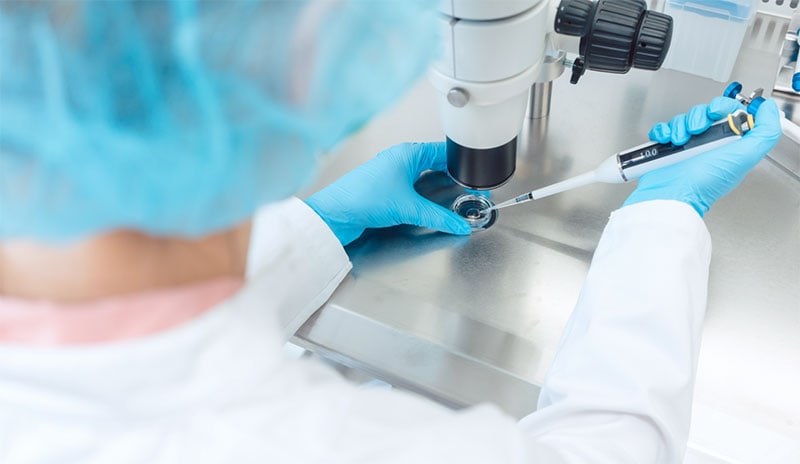

¿In which cases is it indicated?
IVF is recommended in situations such as the following:
- Women over 35 years of age or with low ovarian reserve (low quantity and quality of eggs).
- Women with advanced endometriosis, or other pathology that compromises their fertility. For example: polycystic ovarian syndrome.
- Women with fallopian tube lesions.
- Women who have undergone several unsuccessful artificial inseminations.
- Couples in which the male partner has poor sperm quality.
How is the process of the In Vitro Fertilisation?

Study of fertility
The first step in starting in vitro fertilisation treatment is to carry out a study of the woman, as well as her partner, if she has one. The following tests are performed:
- Ultrasound: the state of the ovaries, uterus and endometrium is assessed to confirm that they are in a position to carry a pregnancy.
- Seminogram of the couple: the quality of the man’s sperm is analysed.
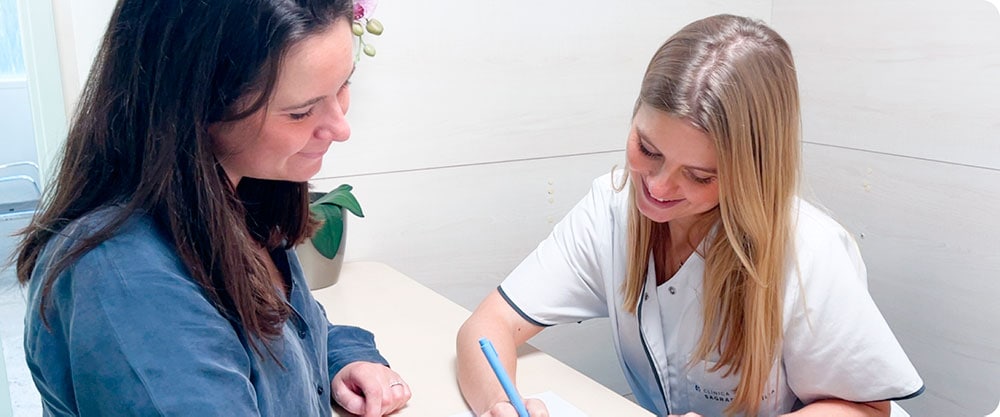
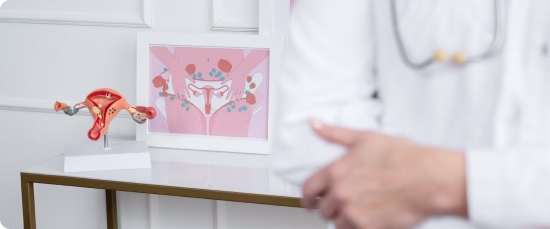
- Study of infectious diseases or genetic alterations (karyotyping).: The blood test also checks whether the woman has any pathology or alteration that could compromise the health of her future child.
- Ovarian reserve analysis: a blood test is performed to check the levels of different hormones: antimullerian, estradiol and FSH. In addition to the blood test, another test that determines the patient’s ovarian reserve is ultrasound. With it, the antral follicle count can be performed. These antral follicles contain immature eggs or oocytes, which are essential to achieve pregnancy. Study of infectious diseases or genetic alterations (karyotype): the blood test also checks whether the woman has any pathology or alteration that could compromise the health of her future child.

Ovarian stimulation
This second step consists of ovarian stimulation of the woman. Ovarian stimulation is a hormonal treatment that aims to stimulate the ovaries to produce as many oocytes as possible.
This hormonal treatment consists of injections that the patient has to apply daily at home.
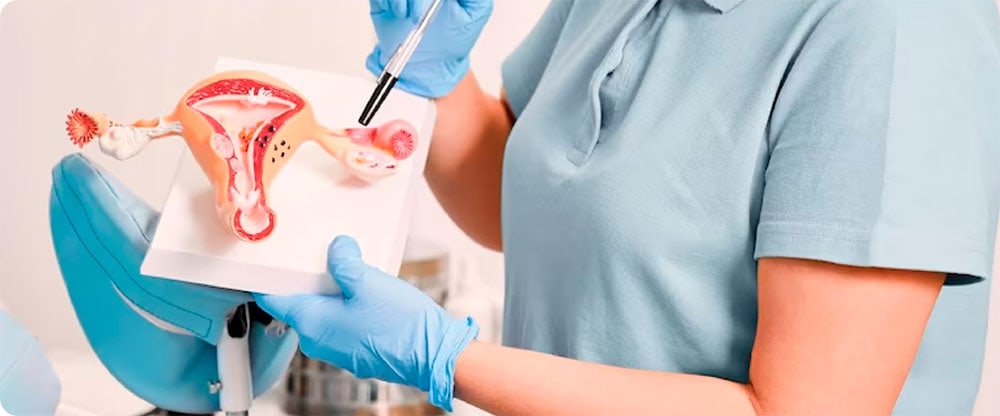
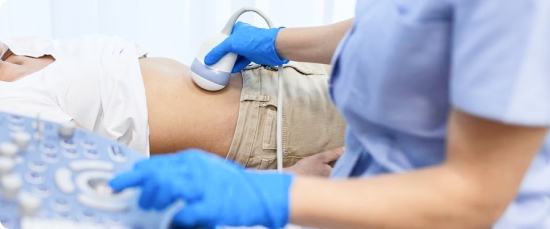
The hormones contained in the injected medication are basically three: gonadotropin, GnRH antagonists and hCG drugs.
Ovarian stimulation lasts approximately 10 to 12 days. During this time, the woman will undergo ultrasounds every 48 hours. In this way, the gynecologist will monitor the follicles and will be able to program the most appropriate moment to perform the follicular puncture.
It can be performed in your country of residence with your trusted gynecologist.
At that time, the patient should stop all the medication she was taking and inject an ovulation inducer.
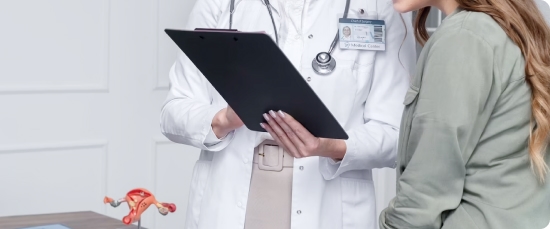


Pick-up of the eggs
36 hours after administering the ovulation inducer, the woman will go to the fertility clinic to undergo a follicular puncture.
Follicular puncture consists of a small surgical procedure to extract the woman’s eggs.
This procedure lasts between 15-20 minutes and is performed under sedation.
After the procedure, the patient rests for a while in the clinic. Afterwards, the patient is discharged to continue with her normal activities.
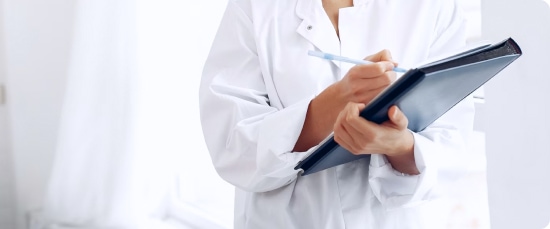

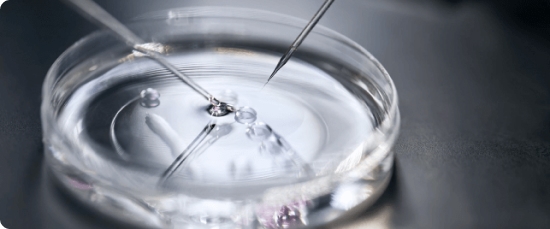
In vitro fertilization
As soon as the eggs are retrieved, they are taken to the laboratory to be fertilized with the semen sample. This fertilization gives rise to a series of embryos, which remain under observation for 3 to 5 days.
During this time, the assisted reproduction specialists study the evolution of the embryos and analyze which are suitable for pregnancy.

Transfer of the embryo
After performing the study, our gynecologists transfer a good quality embryo into the woman’s uterus.
Embryo transfer is a very simple and quick procedure. It is performed through a cannula and, since it is painless, it does not require anesthesia. And, therefore, it does not require any recovery time.


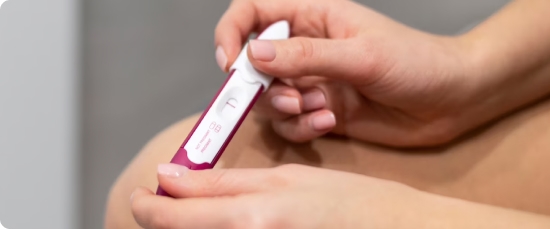
Pregnancy test
Ten days after the embryo transfer, our specialists perform a pregnancy test on the patient. This test is performed by a blood test, as it is more reliable than urine.
If the result of the test is positive, we perform ultrasound checks on the woman to ensure that the evolution of the pregnancy is favorable. If, after the second ultrasound, it is observed that the evolution of the pregnancy is positive, we discharge the patient

¿What is the probability of getting pregnant?
The success rate of in vitro fertilization depends on many factors. Two of the most important are the age of the woman and the quality of the embryos.
However, we can tell you that in vitro fertilization is the assisted reproduction treatment that offers the highest success rate. For example, it is much higher than that of artificial insemination. And, in addition, it should be noted that the probability of pregnancy increases with each cycle of in vitro fertilization.
That we said, the chances of getting pregnant in the first IVF cycle are approximately 60%.
In Vitro fertilisation
What is the price for the In Vitro fertilization?
From
from
4.995€
First appointment for free
Up to 24 monthly payments
0
% of interest
Possibility of adapting payments to your needs: Representative example for a loan of €4,995 over a period of 24 months. Cash price €4,995 TIN 0%, APR 0%. 24 installments of €208.12. Total amount financed: €4,500. Total price in installments and total amount owed: €4,995. Financing offered by Sabadell Consumer Finance and subject to your approval.
Calcula el coste de tu FIV en 2 minutos
Frequently asked questions
The duration of an in vitro fertilization treatment is approximately one month.
However, there are cases in which this period may be longer. For example, when, for whatever reason, it is necessary to perform complementary tests on the patient or couple.
The success rate of the treatment decreases as the patient’s age increases. Therefore, in women over 40 years of age we offer a pregnancy rate of approximately 40%.
First of all, it should be noted that no medical treatment is free of risks or side effects. However, in the case of in vitro fertilization, the possibility of experiencing side effects is very low. And, when they do occur, they are usually due to ovarian stimulation or egg retrieval itself. With regard to ovarian stimulation, these side effects, although infrequent, can occur due to a syndrome known as ovarian hyperstimulation. It occurs in response to excess hormones and may result in abdominal pain or bloating, nausea, vomiting or diarrhea. Vaginal bleeding and difficulty urinating may also occur after egg retrieval.
However, as we have indicated, these side effects are infrequent and, if they occur, they tend to last a few hours.
There are some women, or couples, who experience, throughout their fertility treatment, feelings of anxiety or frustration.
It must be taken into account that some patients resort to our treatments after having been trying to get pregnant for a year – or even several years – or that others do so after several unsuccessful attempts at artificial insemination or fertilization. Or others do so after several unsuccessful attempts at artificial insemination or in vitro fertilization.
For this reason, it is essential to have the support of both the environment and our specialists, who provide essential counseling and support for women.
Find out what our patients say!

Marta Balaguer, Barcelona, España
I have been to other clinics and there is no color with the humane and personal treatment that I have received at the Barcelona Center. Waiting for pregnancy test result. 🤞 Wish me luck
Raquel López, Girona, España
Thanks to the doctors’ experience we felt very calm and the results were highly successful.
Déjanos tus datos para que te llamemos o llámanos gratis al
936 55 55 44
- Experts in highly complex treatments
- The first online visit is free.
"*" indicates required fields
